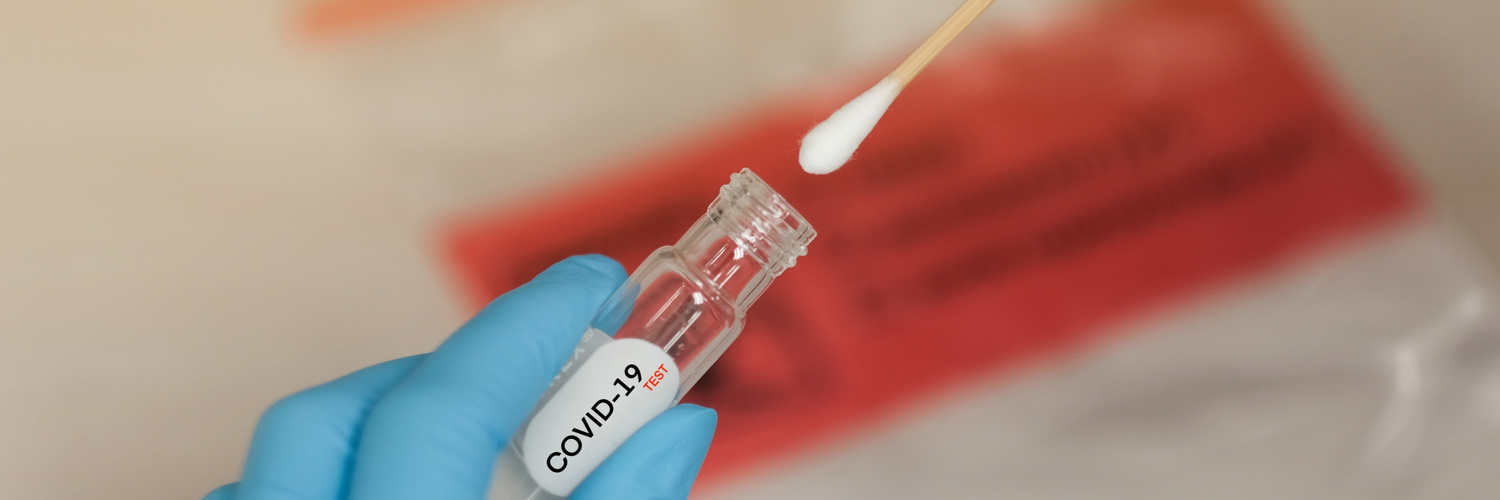New DOJ Guidance Addresses Drug prescriptions, Price-Gouging, and Antitrust Concerns in the Wake of COVID-19
April 8, 2020 – Legal Alerts
The U.S. Department of Justice (DOJ) has issued a series of memoranda that discloses the department’s enforcement priorities and provides public guidance related to the ongoing coronavirus crisis. This article explores three key areas of DOJ’s policy: (1) programs that target the improper prescribing or dispensing of drugs that may be effective in treating COVID-19; (2) an initiative to prevent hoarding and price gouging of critical supplies; and (3) antitrust procedures and guidance for collaboration between companies in responding to the crisis.
Prescribing and Dispensing of Coronavirus Drugs
Multiple U.S. attorney’s offices have announced programs targeting the unlawful prescribing and dispensing of chloroquine and hydroxychloroquine. Although the efficacy of these drugs in treating COVID-19 remains scientifically unproven, the promotion of the drugs as a possible cure prompted a run on their supply. In response, prosecutors coordinated with state regulators to issue emergency rules on the prescribing and dispensing of the drugs. For example, in Ohio, Governor Mike DeWine authorized the State of Ohio Board of Pharmacy to file emergency rule 4729-5-30.2 of the Administrative Code, which states that chloroquine and hydroxychloroquine may be dispensed only when all of the following circumstances apply:
(1) the prescription bears a written diagnosis code from the prescriber and
(2) if written for a COVID-19 diagnosis, the diagnosis has been confirmed by a positive test result, which is documented on the prescription and both of the following apply:
(a) the prescription is limited to a 14-day supply and
(b) no refills may be permitted unless a new prescription is furnished.
The U.S. attorney’s offices for the Northern and Southern Districts of Ohio issued a joint statement announcing an intention to explore criminal charges to hold doctors accountable for prescribing the drugs outside a legitimate medical purpose, as partially defined by the emergency rule. In particular, DOJ will seek to target the most egregious cases in which medical professionals divert drugs for personal use or for the benefit of friends, family, and associates without a legitimate need. It remains unclear what criteria DOJ may use to identify cases severe enough to warrant federal prosecution or which criminal statutes DOJ may seek to deploy (in addition to traditional health care enforcement statutes, other possibilities include criminal provisions of the Defense Production Act as described below). However, medical professionals should heed DOJ’s warning and any doctors who may already have prescribed the drugs outside the above-described circumstances should consult with their Dinsmore attorney or the authors.
Combatting Hoarding and Price Gouging
On March 23, 2020, the president issued Executive Order 13910 (E.O. 13910) prohibiting the hoarding and price gouging of items designated as critical pursuant to section 102 of the Defense Production Act. The order authorized the secretary of Health and Human Services (HHS) to designate health care and medical “resources as scarce materials or materials the supply of which would be threatened by such accumulation” (threatened materials). Pursuant to 50 U.S.C. §§ 4512 and 4513, it is a crime for any person or entity to accumulate threatened materials either (1) in excess of a reasonable need or (2) for the purpose of selling the item in excess of prevailing market prices. Each violation of the statute is punishable by a maximum term of one year imprisonment and a fine of up to $10,000.
On March 25, 2020, HHS designated the following as threatened materials pursuant to E.O. 13910: (1) N-95 respirators; (2) N-95 masks as described in 42 CFR 84.181; (3) elastomeric respirators and particulate filters/cartridges; (4) powered air purifying respirators; (5) portable ventilators; (6) drugs containing chloroquine phosphate or hydroxychloroquine HCL; (7) sterilization services as defined in 21 CFR 880.6860, 880.6870, and 880.6880; (8) disinfecting devices as defined in 21 CFR 876.1500, 880.6992, and 892.1570; (9) medical gowns and apparel, including surgical gowns; (10) personal protective equipment (PPE) coveralls, including Tyvek suits; (11) PPE facemasks, including masks that do not meet fluid barrier or filtration efficiency levels (i.e., non-N-95 masks); (12) PPE surgical masks; (13) PPE face shields; (14) PPE gloves; and (15) ventilators as described in the FDA’s March 2020 Enforcement Policy for Ventilators.
DOJ guidance made clear that the government does not intend to target regular people stocking up for the necessities of daily life or businesses acquiring materials reasonably needed for their own operations. Instead, prosecutors will seek to identify alleged “bad actors who amass critical supplies either far beyond what they could use or for the purpose of profiteering.” DOJ announced the formation of a national task force to address COVID-19 related market manipulation, hoarding, and price gouging. The attorney general instructed all U.S. attorneys to designate one experienced assistant U.S. attorney from each federal district to serve as a member of the task force.
Please contact your Dinsmore attorney or authors for further information or for assistance related to the purchase or sale of items designated as threatened materials.
DOJ and the FTC Announce Expedited Antitrust Procedures and Guidance Related to COVID-19
On March 24, 2020, DOJ and the Federal Trade Commission (FTC) issued a joint statement providing guidance for collaborations between businesses working to protect health and safety during the pandemic. The statement detailed expedited antitrust procedures to review proposed joint actions related to the manufacturing and distribution of goods or rendering of services related to public health and economic needs associated with COVID-19. In particular, the agencies recognized that, historically, companies waited several months for a response to an inquiry made through the DOJ’s Business Review Process or the FTC’s Advisory Opinion Process. Given the need for much swifter action, the agencies announced a target response time of seven calendar days for inquiries related to COVID-19 submitted in writing via email to [email protected]. Requests must explain a COVID-19 nexus, provide a description of the nature and rationale of the proposal, disclose the participants, customers, contracts, temporal and geographic scope of the proposal, and provide any available information regarding the competitive significance of the product or service to be offered.
Even with expedited procedures in place, the agencies recognized that some businesses may need to take immediate actions to respond to the crisis. The joint statement provided a summary of preexisting guidance to help companies address the pandemic consistent with antitrust laws. First, the agencies recognized that competitors may collaborate on research and development aimed to enhance efficiency and integration. Second, the agencies declared that it is permissible for competitors to share reasonable information related to technical know-how, rather than company-specific data about prices, wages, outputs, or costs. Third, the agencies affirmed that, absent extraordinary circumstances, they will not challenge health care providers’ coordinated development of standards for patient management to assist providers in clinical decision making. Fourth, the agencies clarified that most joint purchasing agreements among health care providers will be permissible if they are reasonably designed to increase procurement efficiencies and reduce consumer costs. Finally, the agencies declared that lobbying efforts related to public-private coordination are permitted if the efforts may be characterized as “mere solicitation of governmental action with respect to the passage and enforcement of laws.”
In summary, the agencies stated an intention to apply the rule of reason and to account for exigent circumstances when reviewing the actions of firms to respond to the crisis. The agencies specifically recognized that some “businesses may need to temporarily combine production, distribution, or service networks to facilitate production and distribution of COVID-19-related supplies they may not have traditionally manufactured or distributed.” As a general rule of thumb, putative competitors should take care to ensure that any coordinated action is limited in duration and scope as necessary to assist patients, consumers, and communities affected by the virus.
Please direct any questions regarding antitrust concerns to your Dinsmore attorney or the authors.

